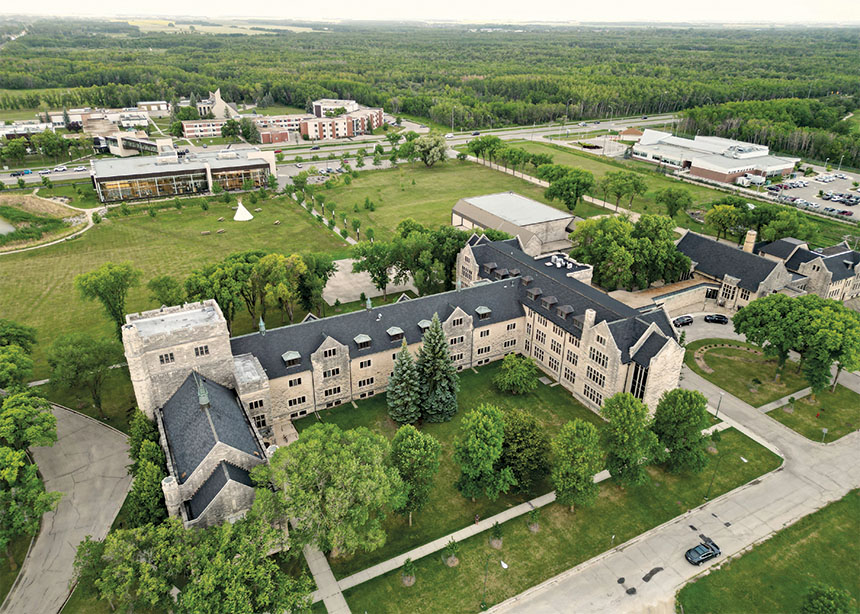Canadian Mennonite University (CMU) has added a new master of arts degree to its Graduate School of Theology and Ministry (GSTM) programming. As of fall 2023, students will be able to earn a Master of Arts in Spiritual Care, in addition to the three pre-existing master’s options: Master of Divinity, Master of Arts in Theological Studies and Master of Arts in Christian Ministry.
The Master of Arts in Spiritual Care will equip students to do chaplaincy work and spiritual care in a vast array of settings, such as hospitals, schools, personal care homes, and prisons. CMU is collaborating with St. Boniface Hospital and the Selkirk Mental Health Centre to offer Supervised Psychospiritual Education (SPE) courses as part of the degree program.


To carry this out, CMU has welcomed Chenene Layne and Tim Frymire to the faculty as Adjunct Professors of Biblical and Theological Studies, SPE. Layne is the coordinator of spiritual care education at St. Boniface Hospital, where she teaches Clinical Psychospiritual Education (CPE) and Frymire teaches CPE through the Selkirk Mental Health Centre.
Students will complete the SPE portion of their degrees with these instructors through their institutions. This includes teaching sessions, case studies, interpersonal group work and clinical practicum days on a unit. Faculty at CMU will teach the rest of the master’s program content through a mix of in-person, hybrid and online courses. The curriculum covers topics such as sacred texts, historical studies of faith community and tradition, professional ethics, counselling and Indigenous studies, among others.
CMU is following the requirements set out by the Canadian Association for Spiritual Care and is moving towards accreditation with the national body. CMU will thus become an institution of record for students wanting to take SPE training, a significant role given that the University of Winnipeg was previously the only institution in Manitoba to offer these credits.
The development of a Master of Arts in Spiritual Care came about when Karl Koop, director of the graduate studies program, started having conversations last year with SPE instructors and staff at the Winnipeg Regional Health Authority and heard about the significant need for spiritual care providers in Manitoba. With only one other spiritual care master’s program in the province—at Providence University College—some institutions are hiring spiritual care providers even if they lack full qualifications, to meet the demand.
“Every year there’s always way more people interested in CPE than the spots we can fill,” says Layne, who is a certified spiritual care supervisor-educator. “A lot of people, as they are continuing to hear and learn about spiritual care, are really interested in seeing how to do ministry in a practical way or outside of a church structure.”
This degree is also relevant for people working in congregations, though, as it teaches many pastoral care skills, Koop says. They’re striving to take the program further, too, teaching the traditions of many denominations and faiths. “We’re increasingly thinking about the interfaith dimensions of this,” Koop says, adding that he hopes people from other faith traditions can find this program “accessible and hospitable.” He also emphasizes the interdisciplinary nature of the program, which will connect easily with other programs at CMU like social work, psychology, and music therapy.
“Being able to be a listening and compassionate and empathetic presence for [people] is helpful,” Layne says. She is grateful when more people and institutions take leadership in teaching spiritual care and contribute to this meaningful field.
For more, see cmu.ca/gstm.








Leave a Reply
You must be logged in to post a comment.